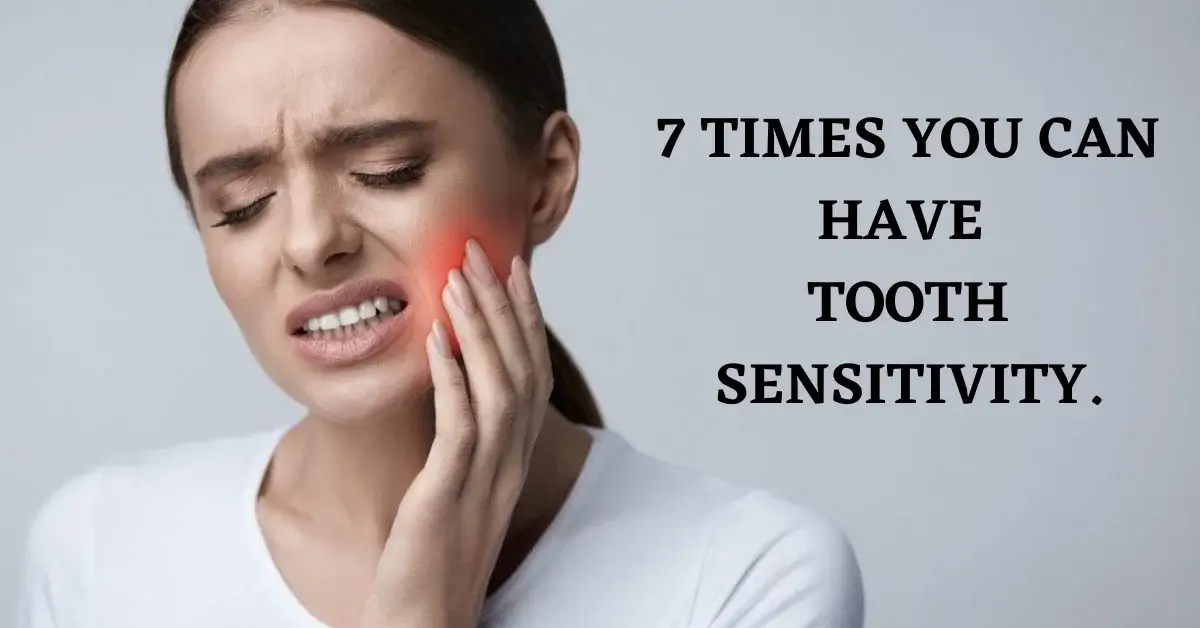Tooth sensitivity can truly be a pain in the tooth! You know what we’re talking about if you’ve ever had a sudden, acute pain in your teeth while eating or drinking something hot, cold, sweet, or sour. It’s not just a small annoyance; it can be extremely debilitating and even prevent you from eating your favourite foods. But what causes tooth sensitivity, and when is it most likely to occur?
7 periods when you’re most likely to experience tooth sensitivity.
- Brushing too hard: Brushing your teeth is an important element of excellent oral hygiene. But brushing too hard or using a toothbrush with firm bristles can cause tooth enamel damage and sensitivity. When the bristles of your toothbrush frays or bends, it’s time to replace it with a softer one.
- Using abrasive toothpaste: Some toothpastes contain harsh chemicals or substances that can wear away the enamel of your teeth and create discomfort. If you feel that your toothpaste is to blame, consider a milder, sensitivity-specific toothpaste.
- Whitening your teeth: While teeth whitening products can remove surface stains, they can also cause sensitivity. If you’re thinking about getting teeth whitening, go to your dentist first to determine if it’s a good option for you and to discuss any potential hazards.
- Teeth grinding, also known as bruxism, can cause tooth sensitivity as well as other oral health issues such as jaw pain, migraines, and tooth deterioration. Your dentist may recommend a personalized mouth guard to protect your teeth if you grind your teeth.
- Consuming acidic foods and beverages: Acidic foods and beverages, such as citrus fruits, carbonated beverages, can wear down your tooth enamel and create sensitivity. Limit your consumption of acidic meals and drinks and rinse your mouth with water after eating or drinking something acidic to lower your chance of tooth sensitivity.
- Fillings, crowns, and root canals are examples of dental operations that might cause temporary tooth sensitivity. This normally goes away within a few days to a few weeks of the treatment. If the sensitivity persists, you should schedule a follow-up appointment with your dentist.
- Gum recession: When the gum recedes, it exposes the delicate roots of your teeth, causing sensitivity. Gum recession can be caused by a variety of factors such as excessive brushing, gum disease, and age. Your dentist might offer procedures to help minimize sensitivity and protect your teeth if you have gum recession.
Conclusion
To summaries, tooth sensitivity can be caused by a variety of circumstances. But you can lower your risk of having sensitivity by being attentive of your oral hygiene habits. Eating and drinking habits, and obtaining dental care if necessary are good for the teeth. If you have persistent tooth sensitivity, you should see your dentist to establish the underlying reason and obtain appropriate treatment. To know more visit https://westvaughandental.ca/ or call us at (905)-893-3368





